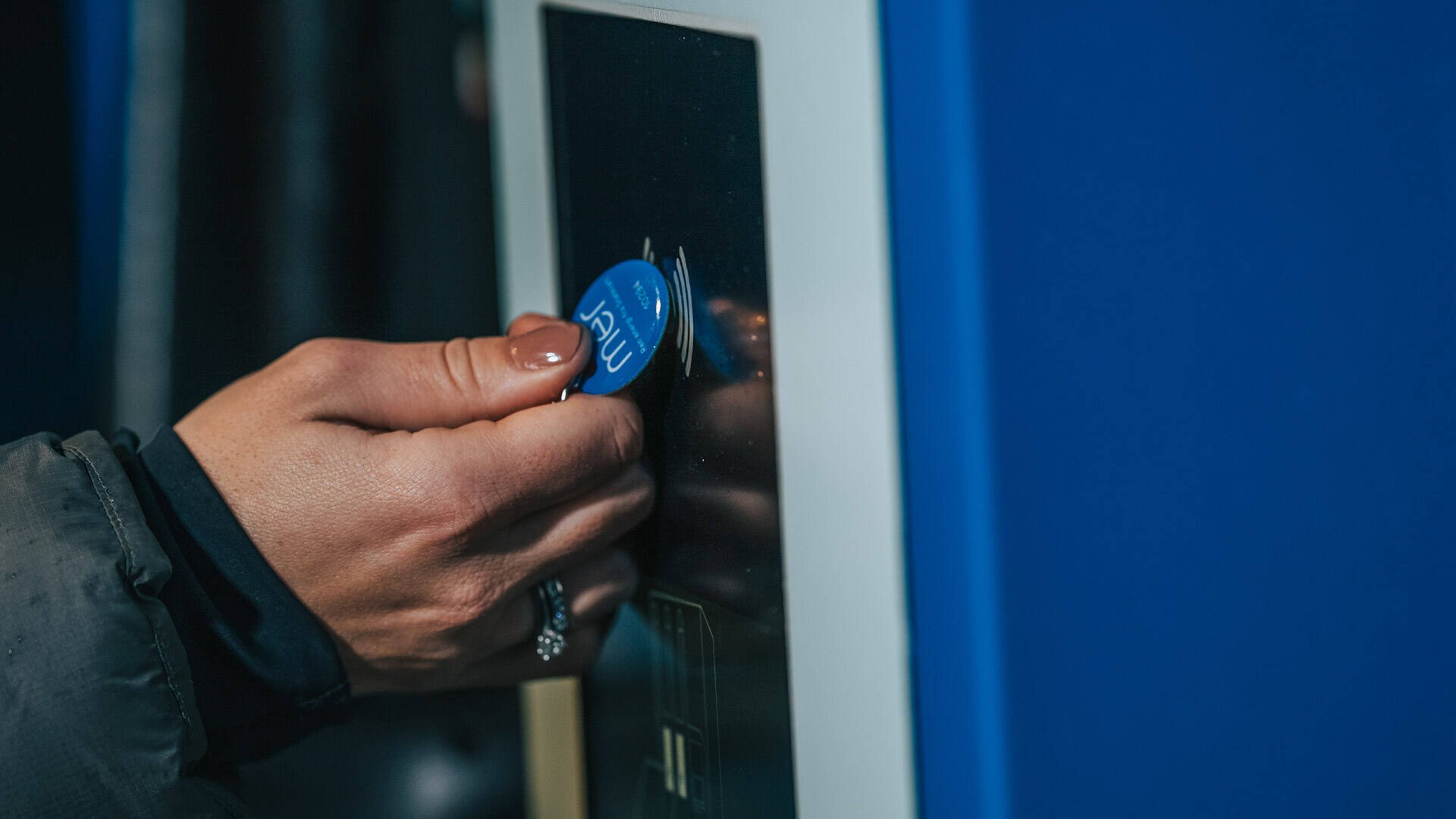
From Bee to
Mer, the newly merged Swedish
e-Mobility operator shares its future plans



Go to next article

Go back
scroll down

Bee chose Alfen as our EV charging partner for smart charging hardware last year. Smart charging is essential in the widest sense of those words. Integrating the car with the building and the other way around, balancing the available energy across multiple vehicles charging, charging when it is cheaper to do so – energy management. These things are essential to optimise sustainability and cost.
We really enjoy working with Alfen, they are a preferred partner of ours. We are big fans and like the Alfen Eve Single and Double Pro-line products. They offer advanced smart functionality which is built on the open protocol, OCCP, and we really appreciate that because it allows us to build out a differentiated service offering from it.
The main challenges lie in finding good locations and achieving our ambitions in the desired timeframe. Some of the opportunities lie in integrated packages and digitalisation. For example, a customer receives a discount for use in the retail element of his charging location or an integrated bill when sitting in the restaurant.
Can you describe your relationship with Alfen and explain how it adds value?
Can you tell us about the challenges and opportunities related to rolling out EV charging infrastructure? What is the role of digitalisation?
Can you tell us about the Swedish charging market?
Plug-in hybrids account for about 60% of the market in Sweden, the real boom in electric vehicles is yet to happen but is very close.
We are being driven by government incentives and are following Norway, which is about 5 years ahead in terms of charging infrastructure, and so there is a lot we can learn from there.
While there are current government incentives for charge points at home, offices, fleets and destination charging at the moment, they are resulting in the infrastructure being rolled out more rapidly than the actual uptake of electric vehicles. For example, a business fleet with an EV component of say only 5 cars will install 20 charge points at once. It won’t replace its non-EV fleet until the leases end, because there is no incentive to do so, but they are putting in the charge points ready for them now, while the incentive supports doing that.
“ Smart charging is essential in the
widest sense of those words ”
Can you explain the benefits of the merger and what they mean for the future?
It is great to be part of a European organisation and it’s very important because it allows us to better serve our customers across multiple geographical locations. The group’s collective belief is that we do the right thing for sustainability as a whole and that also presents business opportunity.
Our aim is to become active across Europe while aiming to stay customer centric. We also have a number of specific focus areas which include rapid extension of the public ultra-fast charging network to accommodate travel, and charging infrastructure for multi-home environments, for example apartment complexes. We will continue to extend partnerships with OEMs and car leasing companies – new business in the Nordics will be driven mostly by lease cars. Further developing our offering to make it seamless is also important and this involves smart charging and energy management for optimisation of service and costs. We will also increasingly become more international. For example, we already have an international roaming agreement with Norway which allows network users to use our cards to charge in both countries.
For the industry as a whole, international roaming agreements still need a huge amount of work. Charge point operators need to strike a balance between providing the optimal customer journey and making a return on investment and this could well lead to selective roaming agreements.
Can you explain a little of the company background and your role in it?
I am Managing Director of Mer Sweden and, before the merger, I was also CEO of Bee Charging Solutions. Bee’s history began 6 years ago, when it was originally founded as Clever Sweden, a partner of the Danish company with the same name which still exists there today.
Unusually, my background is in automotive rather than energy (which is the norm in this business). I previously worked for Mercedes Benz, then Honda and also Haldex, a four-wheel drive supplier.
My own EV charging journey began when we started the business as Clever Sweden in 2015. Commissioned by our owner, I founded the company. It was 2015, the early days of the industry, and we were focused on building our public fast-charging network even though it was apparent that public charging would only ever meet about 10% of charging needs, with the rest of the charging need taking place at the home or the office.
My experience served us well as we started working with OEMs. We began with the main brands in the Nordics, for example, Volvo and VW Nordics. They needed to install domestic chargers at customer homes.
Fast forward to today and we are a successful charge point operator and e-mobility service provider and also now part of a broader European group.

An interview with Fredrik Nordin,
CEO at Bee Charging
With over 2000 public EV charge points and an estimated market share of 15-20%, Bee Charging Solutions was a successful Swedish charge point operator. It was owned by three of the country’s utilities: Öresundskraft, Jämtkraft and Tekniska Verken, until early this year, when Norwegian energy giant, Statkraft, also took a 51% share.
To take advantage of the impending boom in the Swedish EV market, Bee is being merged with Statkraft’s Swedish charging business, Grønn Kontakt, to become Mer Sweden, part of Statkraft’s Mer Group portfolio, which already operates in Norway, Germany and the UK.
Fredrik Nordin, CEO of Bee Charging, has also taken the helm at the new company. We spoke to him about Swedish market direction generally and the opportunities he sees as a result of the merger.


From Bee to
Mer, the newly merged Swedish
e-Mobility operator shares its future plans



Go to next article

Go back
Bee chose Alfen as our EV charging partner for smart charging hardware last year. Smart charging is essential in the widest sense of those words. Integrating the car with the building and the other way around, balancing the available energy across multiple vehicles charging, charging when it is cheaper to do so – energy management. These things are essential to optimise sustainability and cost.
We really enjoy working with Alfen, they are a preferred partner of ours. We are big fans and like the Alfen Eve Single and Double Pro-line products. They offer advanced smart functionality which is built on the open protocol, OCCP, and we really appreciate that because it allows us to build out a differentiated service offering from it.
The main challenges lie in finding good locations and achieving our ambitions in the desired timeframe. Some of the opportunities lie in integrated packages and digitalisation. For example, a customer receives a discount for use in the retail element of his charging location or an integrated bill when sitting in the restaurant.
Can you describe your relationship with Alfen and explain how it adds value?
Can you tell us about the challenges and opportunities related to rolling out EV charging infrastructure? What is the role of digitalisation?
Can you tell us about the Swedish charging market?
Plug-in hybrids account for about 60% of the market in Sweden, the real boom in electric vehicles is yet to happen but is very close.
We are being driven by government incentives and are following Norway, which is about 5 years ahead in terms of charging infrastructure, and so there is a lot we can learn from there.
While there are current government incentives for charge points at home, offices, fleets and destination charging at the moment, they are resulting in the infrastructure being rolled out more rapidly than the actual uptake of electric vehicles. For example, a business fleet with an EV component of say only 5 cars will install 20 charge points at once. It won’t replace its non-EV fleet until the leases end, because there is no incentive to do so, but they are putting in the charge points ready for them now, while the incentive supports doing that.

“ Smart charging is essential in the
widest sense of those words ”
Can you explain the benefits of the merger and what they mean for the future?
It is great to be part of a European organisation and it’s very important because it allows us to better serve our customers across multiple geographical locations. The group’s collective belief is that we do the right thing for sustainability as a whole and that also presents business opportunity.
Our aim is to become active across Europe while aiming to stay customer centric. We also have a number of specific focus areas which include rapid extension of the public ultra-fast charging network to accommodate travel, and charging infrastructure for multi-home environments, for example apartment complexes. We will continue to extend partnerships with OEMs and car leasing companies – new business in the Nordics will be driven mostly by lease cars. Further developing our offering to make it seamless is also important and this involves smart charging and energy management for optimisation of service and costs. We will also increasingly become more international. For example, we already have an international roaming agreement with Norway which allows network users to use our cards to charge in both countries.
For the industry as a whole, international roaming agreements still need a huge amount of work. Charge point operators need to strike a balance between providing the optimal customer journey and making a return on investment and this could well lead to selective roaming agreements.
Can you explain a little of the company background and your role in it?
I am Managing Director of Mer Sweden and, before the merger, I was also CEO of Bee Charging Solutions. Bee’s history began 6 years ago, when it was originally founded as Clever Sweden, a partner of the Danish company with the same name which still exists there today.
Unusually, my background is in automotive rather than energy (which is the norm in this business). I previously worked for Mercedes Benz, then Honda and also Haldex, a four-wheel drive supplier.
My own EV charging journey began when we started the business as Clever Sweden in 2015. Commissioned by our owner, I founded the company. It was 2015, the early days of the industry, and we were focused on building our public fast-charging network even though it was apparent that public charging would only ever meet about 10% of charging needs, with the rest of the charging need taking place at the home or the office.
My experience served us well as we started working with OEMs. We began with the main brands in the Nordics, for example, Volvo and VW Nordics. They needed to install domestic chargers at customer homes.
Fast forward to today and we are a successful charge point operator and e-mobility service provider and also now part of a broader European group.

An interview with Fredrik Nordin,
CEO at Bee Charging
With over 2000 public EV charge points and an estimated market share of 15-20%, Bee Charging Solutions was a successful Swedish charge point operator. It was owned by three of the country’s utilities: Öresundskraft, Jämtkraft and Tekniska Verken, until early this year, when Norwegian energy giant, Statkraft, also took a 51% share.
To take advantage of the impending boom in the Swedish EV market, Bee is being merged with Statkraft’s Swedish charging business, Grønn Kontakt, to become Mer Sweden, part of Statkraft’s Mer Group portfolio, which already operates in Norway, Germany and the UK.
Fredrik Nordin, CEO of Bee Charging, has also taken the helm at the new company. We spoke to him about Swedish market direction generally and the opportunities he sees as a result of the merger.






